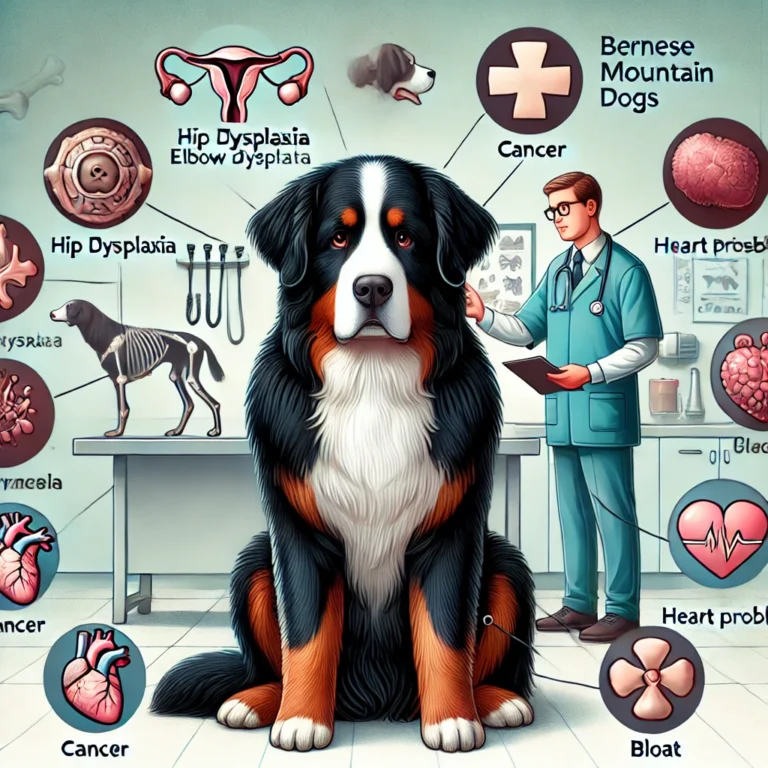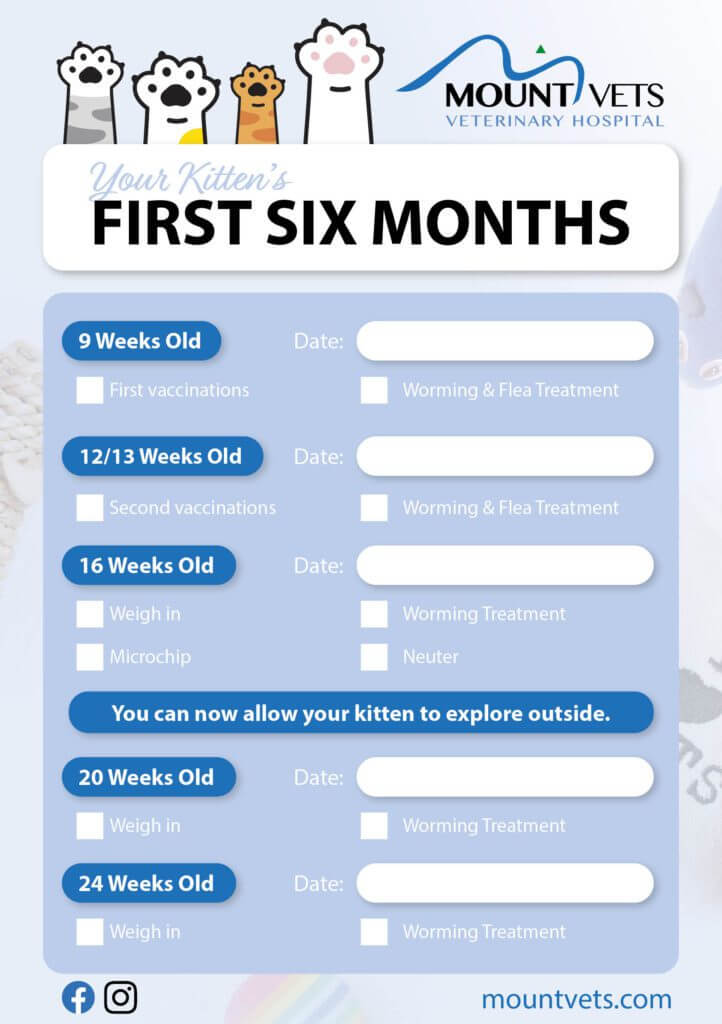Dog Breeds with the Most Health Problems: What to Watch For
When picking a dog, it’s important to know that some breeds are more likely to have health issues. This article will talk about which dog breeds often face the most health problems. While not every dog in these breeds will get sick, it’s good to be aware of what might happen. Let’s look at some of these breeds and what health problems they might have.
1. English Bulldog
English Bulldogs are super cute with their squished faces and stubby tails, but they come with a bunch of health issues. Their unique looks are a double-edged sword. Here are some common health problems you should watch out for:
- Brachycephalic Obstructive Airway Syndrome (BOAS): This is a big one. Their flat faces make it hard for them to breathe.
- Skin Fold Dermatitis (Intertrigo): Those adorable wrinkles can trap moisture and cause skin infections.
- Eye Conditions: They often have problems like cherry eye and dry eye.
- Orthopedic Issues: Hip dysplasia and other joint problems are common.
Keeping your English Bulldog at a healthy weight and giving them proper exercise can help manage some of these issues. Just be careful not to overdo it!
Despite these challenges, their calm and patient nature makes them great family pets. Just be prepared for some extra vet visits and care.
2. German Shepherd
German Shepherds are known for their intelligence and protectiveness. They are often used as police, military, and service dogs. These loyal companions form strong bonds with their families, making them one of the best family protection dogs. However, they are also prone to several health issues that you should be aware of.
One of the most common problems is hip and elbow dysplasia. This genetic condition affects the joints and can cause significant pain and discomfort. Regular check-ups and a healthy diet can help manage this issue. Another concern is degenerative myelopathy, a disease that affects the spinal cord and can lead to paralysis.
German Shepherds are also at risk for exocrine pancreatic insufficiency (EPI), a condition where the pancreas fails to produce enough digestive enzymes. This can lead to weight loss and poor coat condition. If you notice any symptoms, consult your vet for a dog health certificate to confirm the diagnosis.
- Common Health Issues in German Shepherds:
- Hip and elbow dysplasia
- Degenerative myelopathy
- Exocrine pancreatic insufficiency (EPI)
Regular vet visits and a balanced diet are crucial for keeping your German Shepherd healthy. Don’t forget to ask your vet about how to improve dog gut health and other preventive measures.
If your German Shepherd shows signs of dog separation anxiety, there are various dog separation anxiety solutions available. Training and mental stimulation can also help in calming a hyper dog. Remember, a well-cared-for German Shepherd can be a wonderful addition to any family.
3. Great Dane
Great Danes, often called gentle giants, are known for their towering height and sweet nature. However, they are prone to several health issues that can affect their quality of life. Great Danes are prone to joint and bone issues, including hip dysplasia and osteoarthritis. Hip dysplasia is a genetic condition where the hip joint doesn’t fit properly, causing pain and mobility issues.
Another major concern for Great Danes is bloat, also known as gastric dilation and volvulus (GDV). This life-threatening condition occurs when the stomach fills with gas and twists, trapping food and gas inside. If you notice your dog pacing, panting, and drooling excessively right after eating, call the vet immediately. GDV can be fatal if not treated quickly.
Great Danes also have a shorter lifespan, typically living between eight to ten years. Their large size puts extra strain on their bodies, making them more susceptible to health problems as they age.
- Joint and bone issues
- Bloat (GDV)
- Shorter lifespan
Despite their health challenges, Great Danes are loving and gentle pets that can bring a lot of joy to your life.
4. Dachshund
Ah, the beloved dachshund! This adorable little dog is known for its long body and short legs, which make them a joy to watch as they wiggle around.
Dachshunds can be predisposed to several health issues. Some common health problems in Dachshunds include:
- Back problems: Because of their long bodies, dachshunds are at higher risk for back injuries and spinal disk problems. The best way to keep your dachshund feeling their best is to keep them at a healthy weight. Excess weight puts strain on the back. Also try to limit stair-climbing and jumping down from furniture, as it can also put stress on the back.
- Obesity: Dachshunds are prone to weight gain, which can exacerbate back problems and lead to other health issues like diabetes and joint problems. Feed your Dachshund a balanced diet, provide regularly monitor their weight to prevent obesity.
- Dental issues: Dachshunds are prone to dental problems due to their small mouths and crowded teeth. Brush your dog’s teeth regularly, provide dental chews, and schedule professional dental cleanings to help maintain good oral hygiene.
- Eye problems: Eye problems such as cataracts, glaucoma, and progressive retinal atrophy (PRA) are all common in dachshunds and can cause blindness in your dog.
Dachshunds are wonderful pets, but they do come with their own set of challenges. Make sure to keep an eye on their weight and dental health to ensure they live a long, happy life.
5. Cocker Spaniel
Cocker Spaniels are super popular and affectionate dogs, but they do come with their fair share of health issues. One of the biggest problems is their long, floppy ears. These adorable ears can easily pick up dirt and cause ear infections. To keep your pup’s ears healthy, make sure to clean and dry them regularly. Watch out for signs like redness, discharge, or a bad smell.
Another thing to keep an eye on is their eyes. Cocker Spaniels can have a bunch of eye problems, including cataracts, glaucoma, and issues with their third eyelid. Regular vet check-ups can help catch these problems early.
Cocker Spaniels can also suffer from heart conditions like dilated cardiomyopathy and mitral valve disease. Regular vet visits and early detection are key to managing these issues.
Skin problems are another common issue. These can include allergies, infections, and seborrhea, which can make your dog itchy and uncomfortable. Regular grooming and gentle shampoos can help keep their skin healthy.
Lastly, some Cocker Spaniels might develop patellar luxation, where the kneecap dislocates. Keeping your dog at a healthy weight and making sure they get enough exercise can help prevent this.
These lovable dogs may have their health challenges, but with proper care and regular vet visits, they can still lead happy, healthy lives.
6. Cavalier King Charles Spaniel
The Cavalier King Charles Spaniel is a small, affectionate dog with a silky coat and gentle eyes. They are super friendly and make great companions for families, singles, and seniors. But, they can have several health issues you need to watch out for.
One major problem is heart issues, especially mitral valve disease. Regular heart checks and a heart-healthy diet can help manage this condition. They might also face neurological issues like syringomyelia, which involves fluid-filled cavities in the spinal cord. Knowing the symptoms and getting early vet help is key.
Cavaliers are highly sociable and adaptable, but their health needs careful attention.
Here’s a quick look at the risk of senior cardiac disease in different breeds:
| Rank | Breed | Cardiac Disease Risk (%) |
|---|---|---|
| 1 | Cavalier King Charles Spaniel | 11.1 |
| 2 | Cavachon | 6.5 |
| 3 | Japanese Chin | 6.0 |
| 4 | Whippet | 5.4 |
| 5 | Maltese | 5.4 |
So, if you have a Cavalier, keep an eye on their health and enjoy their loving nature!
7. Pug

Pugs are small, affectionate, and full of charm. With their wrinkled faces, short muzzles, and curly tails, they are easily recognizable. Originating from China, these little dogs were once companions to royalty. Today, they are beloved family pets known for their friendly and sociable nature. However, their unique physical traits can lead to several health issues.
Common Health Problems
Pugs are prone to a variety of health problems due to their physical characteristics:
- Brachycephalic Airway Syndrome: Their short noses and flat faces can cause breathing difficulties, especially in hot or humid weather. It’s important to keep your Pug cool and avoid over-exertion.
- Eye Problems: Pugs often suffer from eye issues like corneal ulcers, dry eye, and progressive retinal atrophy (PRA).
- Skin Issues: The wrinkles on a Pug’s face can trap dirt and moisture, leading to skin infections. Regularly clean and dry their facial folds to prevent irritation.
- Pug Dog Encephalitis (PDE): This is an inflammatory condition in the brain that causes seizures and other erratic behaviors. It’s inherited and affects small breeds the most.
- Allergies: Pugs can be prone to various allergies, which can cause itching and discomfort.
- Luxating Patella: This condition involves the dislocation of the kneecap, which can cause pain and mobility issues.
- Hip Dysplasia: This is a genetic condition where the hip joint doesn’t fit properly, leading to arthritis and pain.
- Hypothyroidism: This condition affects the thyroid gland and can lead to weight gain and lethargy.
Pugs are small, mischievous, and fun-loving dogs that date back to 400 B.C. They were once companions for royal families in China.
Tips for Keeping Your Pug Healthy
- Regular Vet Visits: Keep up with regular check-ups to catch any health issues early.
- Proper Diet: Avoid overfeeding to prevent obesity, which can exacerbate other health problems.
- Exercise: Short, regular walks are better than long, strenuous ones.
- Cleanliness: Keep their facial folds clean and dry to avoid skin infections.
- Socializing a Puppy: Early socialization can help your Pug become a well-adjusted adult dog.
Pugs are wonderful companions, but they do require some extra care to keep them healthy and happy. By being aware of these common health issues and taking steps to prevent them, you can ensure your Pug lives a long, joyful life.
8. Golden Retriever
Golden Retrievers are one of the most beloved family dogs, known for their gentle and friendly nature. However, they are prone to several health issues that you should be aware of. Common health problems with Golden Retrievers include hip dysplasia, elbow dysplasia, eye problems, hypothyroidism, and ichthyosis. These conditions can affect their quality of life, so it’s important to keep an eye out for any symptoms and consult your vet regularly.
Hip Dysplasia
Hip dysplasia is a common issue in Golden Retrievers. It occurs when the hip joint doesn’t develop properly, leading to arthritis and pain. Regular check-ups and maintaining a healthy weight can help manage this condition.
Elbow Dysplasia
Elbow dysplasia is another joint problem that affects Golden Retrievers. It can cause lameness and discomfort. Early diagnosis and treatment are crucial to prevent further complications.
Eye Problems
Golden Retrievers are also prone to various eye problems, including cataracts and progressive retinal atrophy. Regular eye exams can help detect these issues early.
Hypothyroidism
Hypothyroidism is a condition where the thyroid gland doesn’t produce enough hormones. Symptoms include weight gain, lethargy, and a dull coat. Medication can help manage this condition effectively.
Ichthyosis
Ichthyosis is a skin condition that causes flaky and itchy skin. Regular grooming and specialized shampoos can help keep this condition under control.
Golden Retrievers are wonderful companions, but their health issues require attention and care. Regular vet visits and a good Puppy schedule 8 weeks can make a big difference in their well-being.
Remember, using Positive reinforcement dog training can help manage their behavior and keep them happy. And if your Puppy excited pee happens, don’t worry—it’s just part of their charm!
9. Boxer

Boxers are patient, playful, and affectionate dogs that are excellent with children. They have a protective instinct and can be good family watchdogs. However, they are prone to several health issues that you should be aware of.
Common Health Problems
Boxers are known to suffer from a variety of health problems, including:
- Cancer: Boxers have one of the highest cancer rates among dog breeds. Owners often file cancer pet insurance claims, especially as their dogs age.
- Bloat: This is a serious condition that can be life-threatening if not treated promptly.
- Skin Issues: Allergies and inflammation are common in Boxers.
- Obesity: Keeping your Boxer at a healthy weight is crucial to avoid additional health problems.
- Degenerative Myelopathy: This is a painful condition that, if left untreated, can lead to osteoarthritis.
- Hypothyroidism: This condition can affect your dog’s metabolism and energy levels.
- Epilepsy: Seizures can be a common issue in Boxers.
- Kidney Disease: Regular vet check-ups can help catch this early.
- Arthritis: Older Boxers are particularly prone to this condition.
It’s a painful condition that, if left untreated, can lead to osteoarthritis. Mild cases can be managed with nutrition and lifestyle adjustments, while more severe cases may require medical intervention.
10. Rottweiler
Rottweilers are the last dog on our list. These strong, intelligent, and loyal dogs are known for their protective nature. With proper training and socialization, they can be loving and devoted pets. However, Rottweilers are prone to several health issues that you should be aware of.
Common Health Problems
Rottweilers can face a variety of health problems, including:
- Allergies
- Heart disease
- Obesity
- Kidney disease
- Cataracts
- Cancer (osteosarcoma)
- Hip and elbow dysplasia
- Epilepsy
Joint Issues
Large breeds like Rottweilers are at risk for joint problems such as hip dysplasia, elbow dysplasia, arthritis, and osteochondrosis dissecans (OCD). OCD is a condition where the cartilage in a joint doesn’t form properly, often requiring surgery to remove the abnormal cartilage.
Feeding the right amount of a balanced diet may help keep your Rottweiler’s joints healthy.
Final Thoughts
Despite their health challenges, Rottweilers are excellent companion pets when well-trained and socialized. Their strong build and muscular frames make them capable of performing many tasks with ease. Just be sure to keep an eye on their health and provide them with the care they need.
Key Takeaways
- Certain dog breeds are more likely to have health problems.
- Not every dog in these breeds will develop issues, but it’s good to be aware.
- Proper care can help reduce the risk of health problems.
- Knowing the common issues can help you prepare and take better care of your dog.
- Always consult with a vet for the best advice on your dog’s health.
Conclusion
In the end, knowing which dog breeds are more likely to have health problems can help you make a better choice when picking a furry friend. While these breeds might face more health challenges, it doesn’t mean every dog will get sick. With good care, a healthy diet, and regular vet visits, many of these dogs can live happy and long lives. So, if you have your heart set on one of these breeds, just be ready to give them the extra love and attention they might need. After all, the joy they bring is totally worth it!
Frequently Asked Questions
Why do English Bulldogs have so many health problems?
English Bulldogs have many health problems mainly due to their unique physical features, like their flat faces and short snouts. These traits can cause breathing difficulties, skin issues, and joint problems.
Are German Shepherds prone to hip dysplasia?
Yes, German Shepherds are prone to hip dysplasia. This condition affects their hip joints and can cause pain and mobility issues as they age.
What health issues are common in Great Danes?
Great Danes often suffer from heart problems and bloat, a condition where the stomach fills with gas and twists. They also have a shorter lifespan compared to other breeds.
Do Dachshunds have back problems?
Yes, Dachshunds are prone to back problems due to their long bodies and short legs. They can develop a condition called intervertebral disc disease (IVDD), which can lead to pain and mobility issues.
Are Pugs at risk for breathing problems?
Yes, Pugs often have breathing problems because of their flat faces. This can lead to a condition called brachycephalic airway syndrome, which makes it hard for them to breathe.
What health issues do Golden Retrievers commonly face?
Golden Retrievers are prone to hip and elbow dysplasia, as well as certain types of cancer. They may also suffer from allergies and heart problems.






